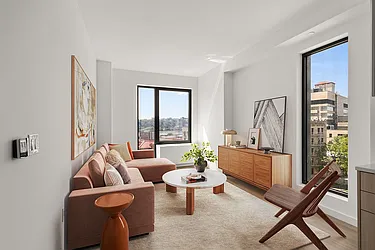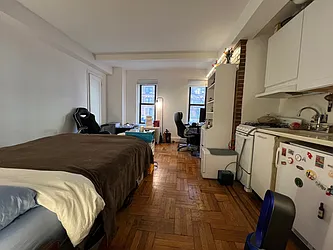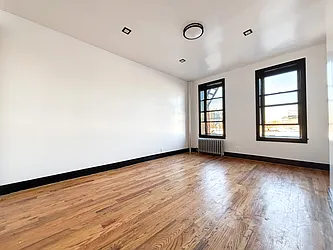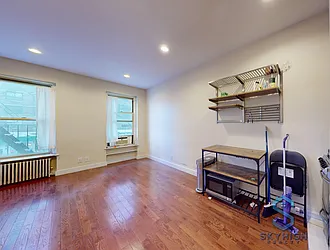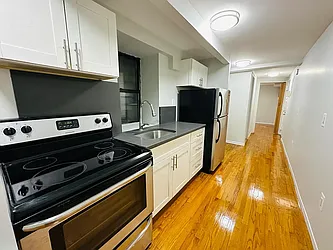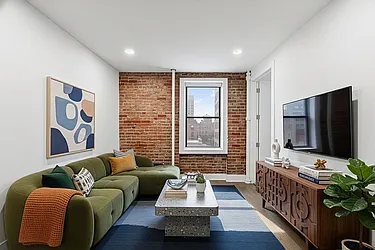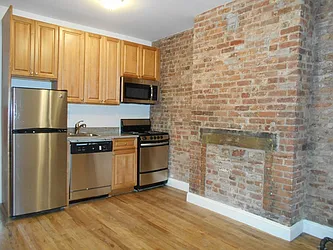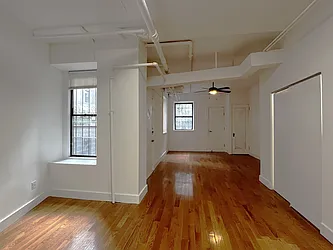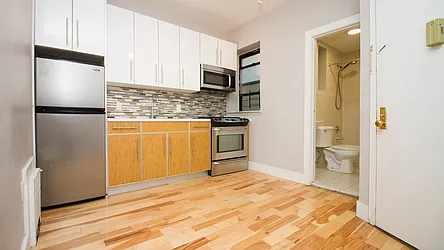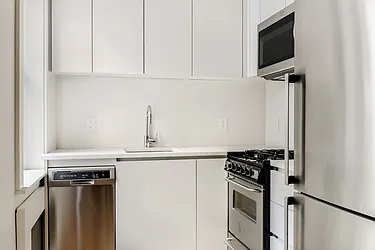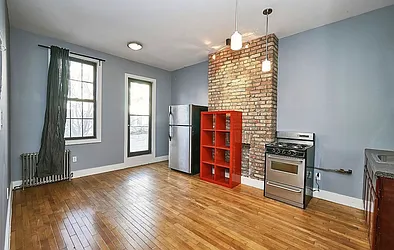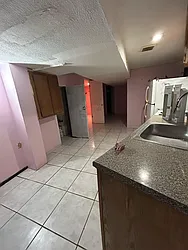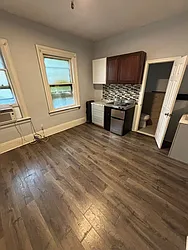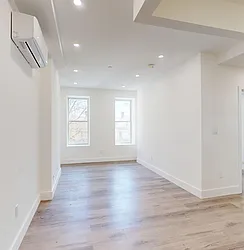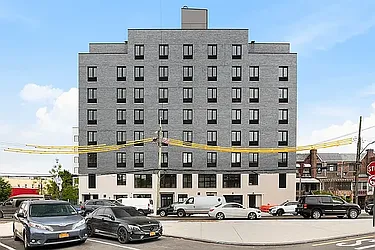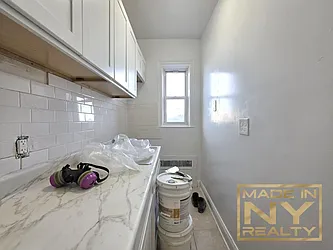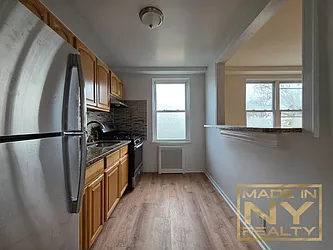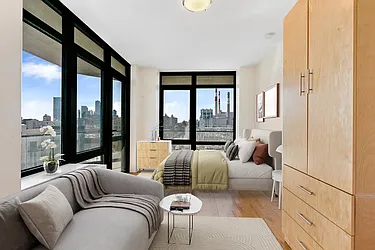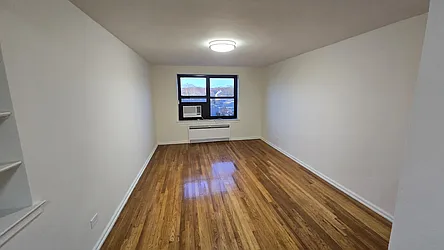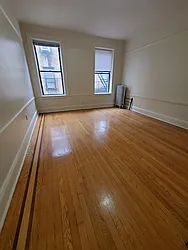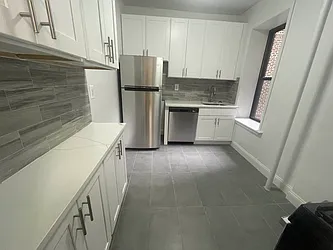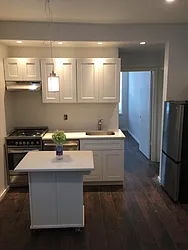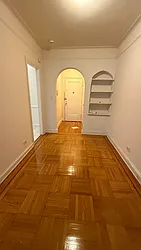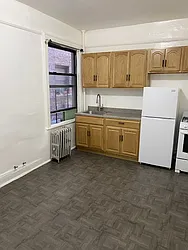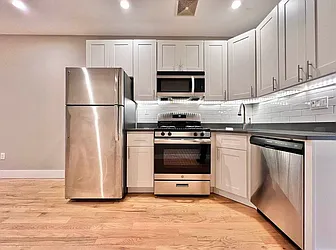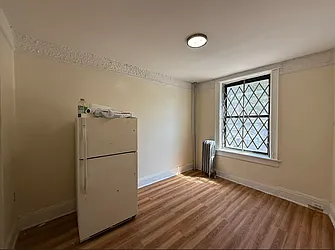NOTE: As of June 11, 2025, a broker can no longer require you to pay them a broker fee if they’ve listed an apartment on behalf of a property manager. For more information, see our explainer on What the FARE Act Means for Renters.
New York City apartment hunting is a sport full of unknowns, but the various fees that renters face remain one of the biggest of all. They include application fees, broker fees, and security deposits and can vary in price considerably. There are ways to avoid some of them, though they can in some situations be inescapable, and it can be difficult to know if the amount you’re being charged is fair or even ethical. Here’s everything you need to know about NYC renter fees.
What are NYC renter fees?
In addition to the standard security deposit, application fee, and broker fee that renters can typically expect to pay, costs can also sometimes include a move-in fee. The security deposit, by New York State law, can’t be more than one month’s rent. Other costs, though, are less consistent.
In most cases, renters will be charged an application fee to cover the cost of a credit check done prior to renting someone an apartment. In New York State, that cost is capped at $20, though that limit doesn’t necessarily apply if the fee is being paid to a co-op or condo board.
Manhattan Rentals Under $3000 on StreetEasy Article continues below
In some cases, renters in a condo or co-op building might also be asked for a move-in fee. This is a nonrefundable payment meant to cover small maintenance items, like fresh paint, done prior to a new tenant arriving. A move-in fee generally ranges between 20 and 50% of one month’s rent.
Other potential NYC renter fees include pet fees and amenity fees. Pet fees are typically one-time fees that can range from $500 to half a month’s rent, depending on the pet’s size, weight, and breed. Some buildings will charge a smaller monthly pet fee instead. In new developments or luxury buildings, renters may be charged an amenity fee, which usually falls between $500 and $1,000 annually. In some buildings, renters can choose to opt out of using amenities to avoid the fee.
How do fees for rentals in co-op or condo buildings compare?
Renting an apartment in a co-op building can often mean higher costs than in a typical rental building. In New York, caps on things like application fees don’t apply to co-ops and condos. As these buildings are typically owner-occupied, there’s less of a need to cater to renters with limited fees.
“The most confusing thing for people is to understand that the fees associated with a standard rental unit, just a management company and where you go in and you apply, can in some cases be significantly less than a condo or a co-op,” says licensed real estate agent and StreetEasy® Expert Joshua Rodriguez. “The co-op is operating as a cooperation, like a business, versus a management company. They can set their own application fees, so they set them higher.”
Renting in these buildings involves a high level of scrutiny from a co-op board. “You’ve got to give taxes and all these documents. It’s almost as if you’re buying.” Rodriguez sees these rentals more commonly in neighborhoods like Tribeca.
Brooklyn Rentals Under $3000 on StreetEasy Article continues below
What should I know about NYC renter fees?
Come prepared for them. Rodriguez advises asking what financials you’ll need to apply for a rental even before you go visit the rental. “Reach out to the agent immediately, ask them what you need to be prepared if you decide to apply for the apartment so you’re not waiting two weeks for HR to get you a letter of employment, because then you lose out on stuff.”
Be wary if you’re asked to write a check after seeing an apartment without being told what it’s for. “If you bring them a money order or a bank check and you give a deposit to hold the unit for you, but you don’t get anything tangible to hold that agent accountable, that is the biggest red flag,” Rodriguez explains. “Obviously, [agents] need to get paid, but you shouldn’t just be giving money for nothing. There needs to be a receipt, the money should be handled properly.”
What is a broker fee in NYC?
A broker fee is a commission paid to an agent for renting the apartment. If an apartment listing is no-fee, that means the landlord is compensating the agent or it’s For Rent By Owner. Broker fees typically range from one month’s rent to 10-15% of yearly rent.
Here are sample move-in costs for a $3,600/month apartment — the citywide median asking rent as of October 2023 — with a security deposit and 12% broker fee. (To see the latest median asking rent for a particular neighborhood, visit our StreetEasy Data Dashboard.) This breakdown does not include other potential costs mentioned above, such as pet and amenity fees.
Sample upfront costs with a broker fee
| Move-in costs for a $3,600/month apartment | |
| First month | $3,600 |
| Security deposit | $3,600 |
| Broker fee (12%) | $5,184 |
| Total | $12,384 |
How can I find a listing without a broker fee (usually called a “no-fee listing”)?
First step, try StreetEasy. The no-fee filter gives you countless options.
If you’re told that a listing is no-fee, remember that likely only applies to that specific unit, not any other apartments in that building or other listings with that agent. “If you’re thinking of an apartment and reach out to an agent and the agent tells you that that unit is no longer available but they have something else, don’t leave it to chance about the broker’s fee. It doesn’t always translate,” says Rodriguez, who has heard from many people who were caught off guard by this. “Always, always ask because each unit is specific, ask ‘Is there a broker’s fee associated with this unit and if so, how much?’”
In some situations, you may not be able to avoid the broker fee itself, but can negotiate ways to offset it. Rodriguez recently had a client who had to pay a broker fee but was given a month free on her rent from her landlord, which made the cost much more palatable. You can also try to negotiate the broker fee itself. Sometimes you can convince brokers to lower the fee from 15% to 10 or 12%, or from an annual percentage to one month’s rent. It’s worth a shot!
Queens Rentals Under $3000 On StreetEasy Article continues below
When might a no-fee listing not be your best bet?
Committing yourself to only see no-fee listings is restrictive and in some cases, it might be too limiting. Rodriguez has had clients coming to him looking to find an apartment in the next week.
“Sometimes it limits us because we have to find a management company, a landlord where we can get approved super fast and see apartments super fast,” he says. “If there’s a week or less, it’s going to be a limit on options and inventory. Let’s say it’s a week before the first of the month, you’re competing with everyone that’s already secured their apartments for the first of the month. You’re kind of [stuck with] what’s left.” In that situation, the value of a broker who can find you leads and help you get access to showings can be well worth the money.
When thinking about a broker fee, it’s worth considering how long you intend to stay in the home. When amortized over several years, a broker fee might seem like less of an obstacle – and might actually cost less in the long run than a slightly more expensive no-fee listing.
Browse No-Fee Apartments for Rent on StreetEasyThe materials and information contained herein have been prepared or assembled by StreetEasy for informational purposes only. Nothing in this article is meant to convey legal guidance and should not be relied on as legal advice.





